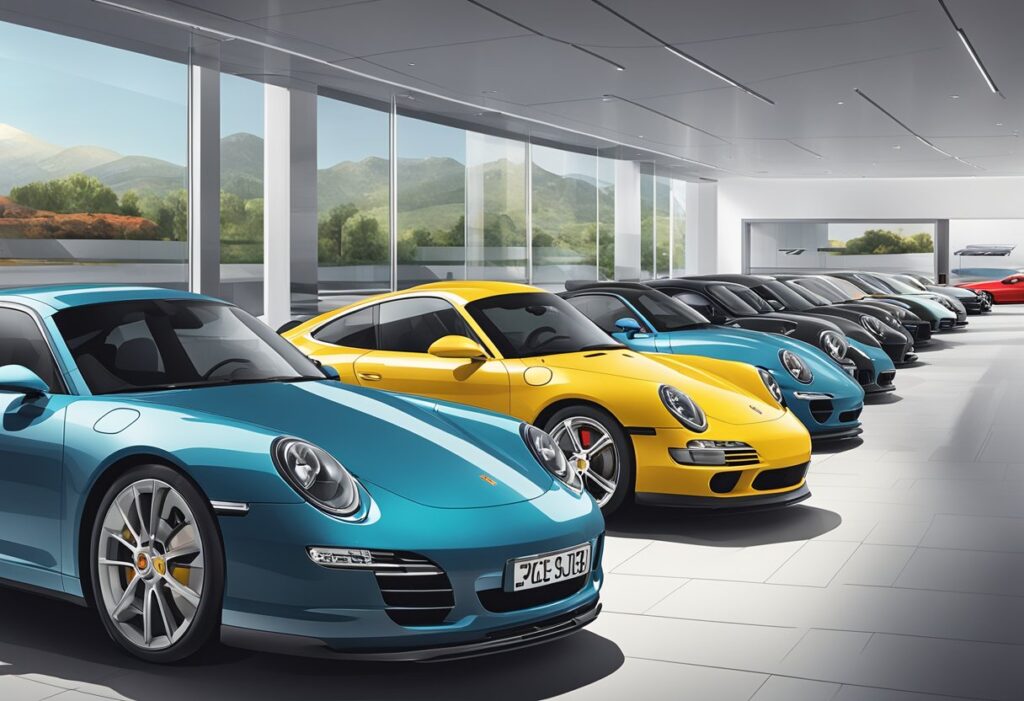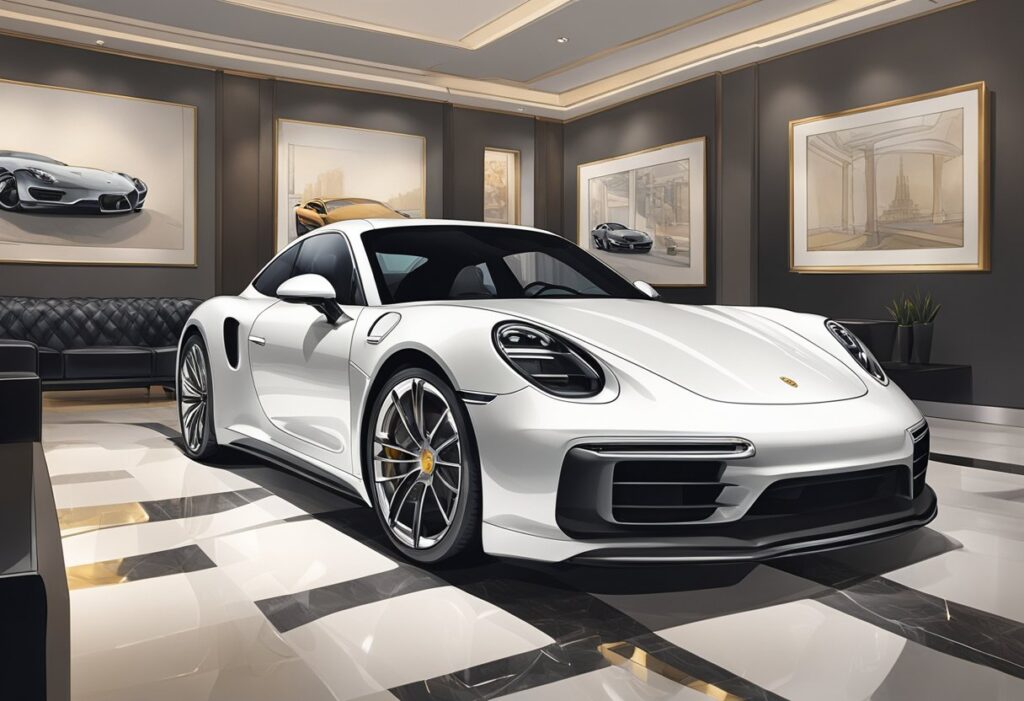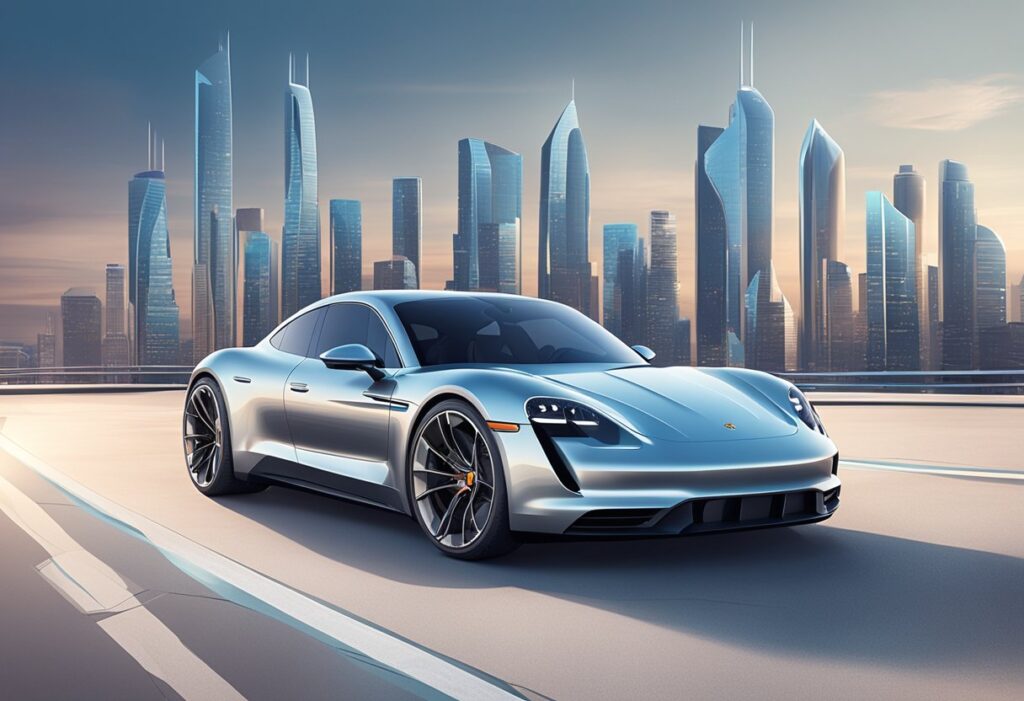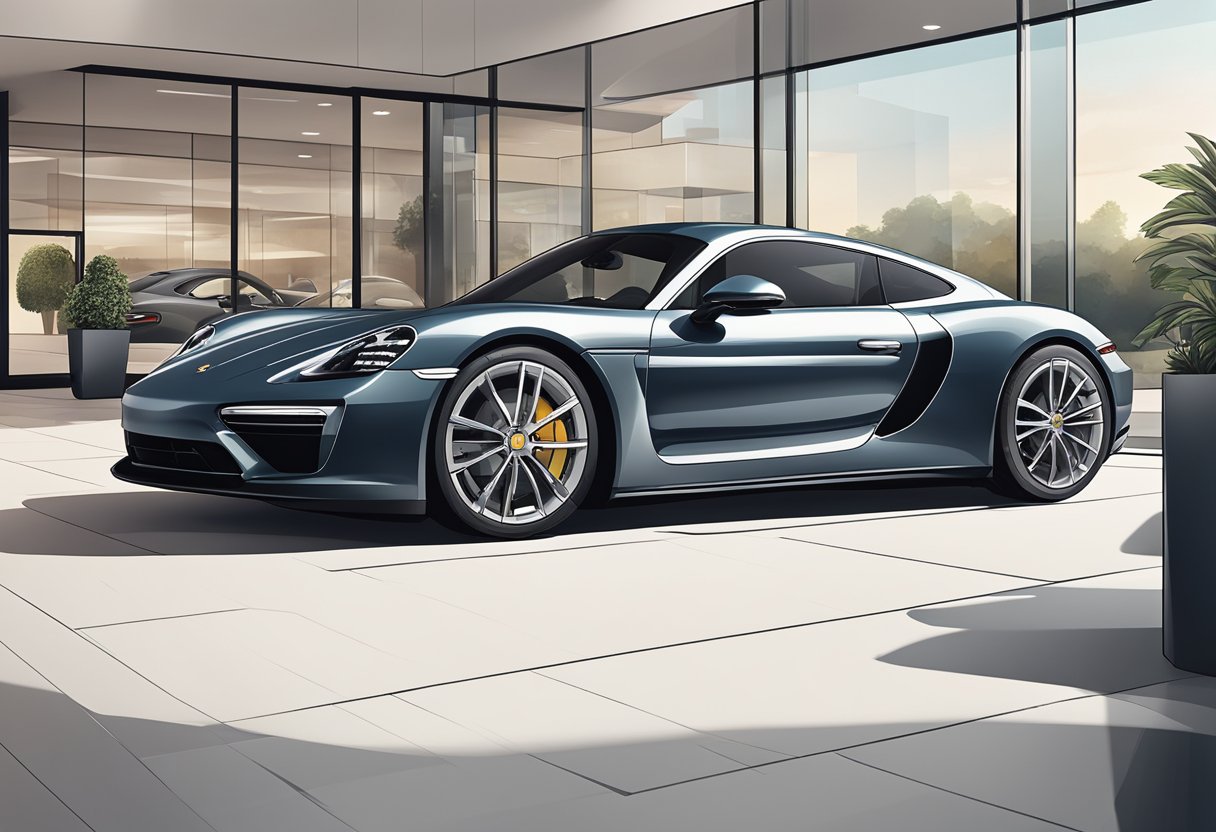Originally posted on February 19, 2024 @ 11:47 am
Porsche has mastered the art of pricing their high-speed luxury vehicles, setting a benchmark that other high-end car brands aspire to reach. Their history includes creating some of the most desired and fastest cars on the market, with their brand standing as a global icon of exclusivity in the automobile industry. What’s their secret? It’s about matching their pricing with the perceived value of their cars among enthusiasts. By setting their car prices to reflect the premium quality that customers are willing to pay for, Porsche maintains its leading position in the realm of automotive excellence. For those interested in understanding how premier pricing strategies keep Porsche at the forefront of competition, prepare for a comprehensive exploration into the dynamics of luxury car pricing, which promises to be an enlightening experience.
The company’s pricing strategy doesn’t just prioritize profits; it also places a significant focus on understanding the psyche of its customers. Porsche owners aren’t just purchasing a car; they are investing in an experience, a piece of engineering marvel that stands as a status symbol. This psychological insight into the mind of the consumer allows Porsche to command its premium prices without alienating its target market.
Key Takeaways
- Porsche’s pricing strategy ensures prices reflect the high value and exclusivity of the brand.
- Insight into customer expectations allows for a balance between profitability and client satisfaction.
- The pricing model sustainably positions Porsche at the forefront of the luxury car market.
The Evolution of Porsche Pricing Strategy
Porsche’s pricing strategy has successfully adapted through the company’s storied history, navigating technological advancements and market expansions while maintaining its premium brand positioning.
Understanding the Legacy of Ferdinand Porsche
Ferdinand Porsche’s vision set the foundation for a brand synonymous with performance and quality. We recognize that his design philosophy—high performance in a lightweight package—continues to influence our pricing strategy. High prices reflect not just the vehicles but the legacy of Porsche.
From Air-Cooled to Water-Cooled Engines
The transition from air-cooled to water-cooled engines in the 1990s was a pivotal shift for Porsche. This evolution echoed in our pricing as these technological advancements in models like the iconic 911 ensured that Porsche remained at the forefront of performance engineering, justifying the premium cost.
Introduction of SUVs and Electrification
With the launch of the Cayenne, our first SUV, followed by the Macan, Porsche successfully entered new market segments. The introduction of the Taycan, our first fully electric vehicle, along with plug-in hybrids like the Panamera, expanded our portfolio. These strategic moves allowed us to adjust our pricing strategy to cover a broader spectrum, ensuring sustained profitability and brand value.
Through these subsections, we’ve explored specific elements of Porsche’s pricing evolution — from honoring the principles of Ferdinand Porsche to embracing engineering revolutions and diversifying our lineup with SUVs and EVs. Our strategy encapsulates a commitment to innovation while maintaining the exclusivity and luxury that our customers expect.
Analyzing Porsche’s Product Mix

Porsche’s product mix is a testament to their strategic mastery, boasting a diversified range of vehicles that cater to various segments of the luxury automotive market. Each model embodies the brand’s commitment to performance, luxury, and innovation.
Diversity of Models: 718 to 911
Our 718 lineup, including the agile Boxster and the muscular Cayman, caters to those seeking a pure sports car experience. Meanwhile, the iconic 911 Carrera stands as the pinnacle of performance, with its evolutionary design and technological advancements exemplifying Porsche’s craftsmanship.
Innovations in the Luxury Sports Segment
The luxury sports segment has consistently witnessed breakthroughs thanks to our commitment to excellence. Innovations like the 918 Spyder’s hybrid technology demonstrate our foresight in performance hybridization, which is expected to influence upcoming models well into 2025 and 2027.
The SUV Success: Cayenne and Macan
We understand the market’s shift towards versatile vehicles, which is why our SUVs, the Cayenne and Macan, are key players in our portfolio. The SUV segment’s success is bolstered by Porsche’s ability to infuse sports car characteristics into spacious and luxurious utility vehicles.
Electrification and Future Outlook
Embracing future trends, Porsche introduced the Taycan, becoming a forerunner in the electric sports car domain. As we look to the future, our focus on electrification is unwavering, with plans to further expand our electric portfolio by 2027, aligning with evolving market demands and environmental considerations.
Porsche Pricing Dynamics
In the realm of luxury automobiles, we understand that Porsche adheres to a pricing model that balances cost with customer value, adapts to demand, and reflects the impact of their cars’ production and features.
Cost Versus Value Proposition
The price of a Porsche is not merely a reflection of the cost to produce it; it embodies the value Porsche delivers to customers. This value proposition includes the brand’s reputation, engineering excellence, and the luxury and performance that are synonymous with Porsche vehicles. Our price points derive from an intricate understanding of what our consumers are willing to pay for premium features and the Porsche experience.
Demand-Driven Pricing Model
Our pricing model is inherently flexible and sensitive to market demand. As demand for Porsche vehicles fluctuates, so do our prices, with occasional price increases when necessary to maintain our brand’s exclusivity and desirability. We carefully monitor the automotive market and adjust prices accordingly, ensuring that they align with what our customers expect and are ready to invest.
Effects of Production and Features on Pricing
Finally, the cost to produce a Porsche, including any optional features and customizations, influences our pricing. Our manufacturing processes are meticulously planned to ensure efficiency and excellence. Each model’s price is proportional to the production cost, the features it offers, and the available options. This means that more advanced or limited-production models by Porsche are priced higher due to the increased costs involved.
By honing this approach, we’ve created a pricing strategy that ensures each Porsche car justifies its cost through its features, performance, and the prestige it offers, thereby ensuring a consistent perception of value among our customers.
The Competition Landscape
In the high-stakes arena of luxury cars, competition is intense, with each brand constantly adjusting to maintain or enhance their market position. Our examination of the competition landscape reveals strategic moves employed by Porsche and how they stand out against other premium automakers.
Benchmarking Against Premium Automakers
Porsche maintains a unique position in the luxury automotive sector because it benchmarks against other premium automakers. We understand that Mercedes-Benz, Ferrari, Lamborghini, and Tesla represent not just competitors, but also parameters against which Porsche measures their success and innovates. By monitoring the progression of Mercedes-Benz in luxury sedans and SUVs, Porsche ensures their offerings meet or exceed these industry standards.
Similarly, Porsche keeps a close eye on the advancements in performance and design from Ferrari and Lamborghini. While these Italian brands epitomize high-performance, luxurious sports cars, Porsche has a reputation for reliable and high-quality vehicles that can be driven daily, balancing performance with practicality. Tesla‘s rise in the electric vehicle market also serves as a barometer for innovation, pushing Porsche to invest in state-of-the-art electric models like the Taycan, thus widening their portfolio and appeal.
How Porsche Differentiates from Rivals
- Innovative Engineering: Porsche relentlessly pursues engineering excellence, creating vehicles that are both powerful and fuel efficient.
- Brand Legacy: Porsche’s storied racing history continues to shape their appeal, offering consumers not just a car, but a slice of automotive royalty.
- Customer Experience: Unparalleled customer service and customization options allow buyers to feel they are purchasing a vehicle tailored to their lifestyle.
When considering differentiation, it’s essential to note Porsche’s relationship with parent company Volkswagen. This connection provides access to resources and technologies that can be leveraged for competitive advantage while maintaining the distinctiveness of the Porsche brand.
Our commitment to innovation, heritage, and consumer satisfaction places us at the pinnacle of the automotive industry. By cementing our position through strategic benchmarking and distinct differentiation, we uphold our pricing model amidst a dynamic competition landscape.
Financial Perspectives of Porsche Pricing
The pricing strategy at Porsche plays a pivotal role in maintaining robust margins and operating profit, establishing strategic MSRP and discounts, and providing tailored customer financing options.
Impact on Margins and Operating Profit
At Porsche, we see a direct correlation between our pricing strategies and the health of our financial margins and operating profit. We set prices that reflect the premium nature of our Stuttgart-manufactured vehicles, ensuring a healthy margin that contributes significantly to our financial stability. Our CFO, Lutz Meschke, oversees these strategies to bolster our fiscal performance.
The Strategy Behind MSRP and Discounts
Our Manufacturer’s Suggested Retail Price (MSRP) aligns with the market value of luxury, performance, and brand prestige that our customers expect from a Porsche. We engage in minimal discounts, preferring to manage price through controlled negotiation to maintain the exclusivity and high perceived value of our cars.
Financial Planning and Customer Financing Options
In our financial services department, we provide customer financing options that are competitive and flexible, enhancing our relationship with customers. By carefully planning these services, we not only make our vehicles more attainable but also secure a steady stream of revenue that contributes to our overall profits.
Customer-Centric Approach to Pricing

We understand that pricing isn’t just about numbers; it’s about matching value to the customer’s desires and expectations. Our approach marries affordability with the allure of luxury, ensuring each buyer feels they are receiving something tailored just for them.
Tailoring Experiences with Customization Options
We offer a range of customization options for the discerning Porsche customer. From the RS models known for their racetrack readiness to the luxurious 911 Sport Classic, our pricing strategy takes into account the unique preferences each model can satisfy:
- RS models: Track-focused performance
- GTS models: Balance between sportiness and comfort
- Turbo models: Ultimate power and acceleration
- 911 Sport Classic: Exclusive design paying homage to Porsche heritage
Each option is priced to reflect the value it brings to our customers’ driving experience.
Understanding the Porsche Customer
We recognize that our customers are not just buying a car; they are investing in a lifestyle. Our sales strategies are refined to align with the informed, passionate, and sophisticated nature of the Porsche patron. By understanding the subtleties that excite our customers—whether it’s the raw power of the Turbo or the elegance of the Sport Classic—we cater our pricing to match the value they perceive and receive.
Sales Strategies and Acquisition
The success of our sales lies in a strategy that emphasizes customer acquisition through a customer-centric lens. We ensure that the acquisition process is as premium as the vehicles we sell:
- Sales Experience: Personalized and high-end
- Model Availability: Strategic to meet demand
- Options Variety: Abundant to emphasize customization
Thus, our sales approach not only prioritizes the sale of a vehicle but also the formation of a lasting relationship with the customer. Our models, from the agile GTS to the classic allure of the Sport Classic, are priced to not just attract customers, but to welcome them into the Porsche family.
Looking Ahead: Porsche’s Future in Pricing

As we approach the mid-2020s, Porsche’s pricing strategy will pivot around two main factors: market evolution and sustainability initiatives. These will be the driving forces that shape how we position our vehicles financially.
Anticipating the Evolution of the Sports Car Market
By 2025 and beyond, the sports car market is expected to undergo significant changes with consumer preferences shifting towards electric vehicles (EVs) and plug-in hybrids. Balancing the production of our revered sports cars with the increasing demand for EVs and SUVs, our models, including potential future hypercars, will not only embody innovation but also reflect competitive pricing that harmonizes with these market trends.
Forecast Year: 2027
Key Developments:
- Increased EV and plug-in hybrid model offerings.
- Expansion within the SUV segment alongside sports cars.
- Competitive pricing strategies to match evolving consumer preferences.
Sustainability Initiatives and Their Impact on Pricing
Our commitment to sustainability is paramount, and by 2025, sustainability efforts are expected to play a pivotal role in the pricing of our vehicles. The development of eco-friendly sports cars, incorporating technologies that reduce environmental impact, will be factored into our pricing models. We foresee a balanced pricing approach that corresponds to the investment in sustainable technology while maintaining the value proposition our customers expect.
- Sustainability Goals:
- More than 80% of our vehicles to be electric or plug-in hybrids by 2027.
- Implementation of eco-innovations in manufacturing and throughout our vehicle lineup.
The integration of these elements into our pricing strategy not only underscores our commitment to the future but also reflects our dedication to leading the industry with confidence and expertise.





